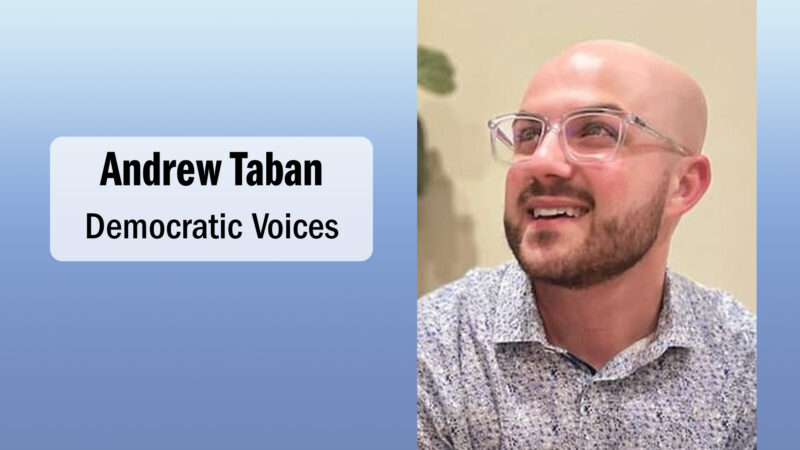Voters are mad and I can’t blame them. Like many Americans I find myself deeply frustrated with our current political landscape.
Stick with me. I do bring perspective to this frustration. As founding chair of the Santa Clarita Valley Democrats, a former legislative staffer for two incredible assemblywomen, and someone involved in multiple community nonprofits/organizations since age 13, I’ve witnessed politics from multiple angles. These experiences have shown me both the promise and peril of our democratic system. And there is one peril I can’t stop thinking about.
There is a tangled web of shady priorities in a lot of political circles. A messy web of wealthy donors and corporations who will stop at nothing to make sure our government passes laws that allow them to do whatever they want in the name of making more money. And while political leaders on both sides are caught up in this web, it is the Republican Party as a whole that has embraced this system of focusing on legislation not for the people, but for their wealthy donors. Leaving behind the most vulnerable among us, including their very loyal voters.
And what’s at the center of this tangled, messy web? Citizens United v. Federal Election Commission — a 2010 Supreme Court decision that essentially said when it comes to free speech, corporations are equal to people and because money equals speech in politics, corporations were able to spend as much money as they wanted to on political campaigns.
Before Citizens United, campaign finance laws were fairly well regulated. Our representatives were originally intended to be everyday citizens — people who understand ordinary life, fight for their constituents’ interests, and then return home to listen to the people they serve. Today, this founding vision seems like a distant vague memory.
We now have representatives who are extraordinarily wealthy, never retire, and who continuously accept campaign donations from dark money super PACs and shady special interests.
The consequences of allowing big corporate money into politics are dire. Instead of advocating for their communities like they’re supposed to, a lot of politicians become beholden to their corporate donors.
Then when they actually do legislation, they prioritize bills that make their donors richer over bills that would make the lives of their constituents better. It’s a really icky pay-for-play scheme and it’s totally legal, thanks to Citizens United.
Events like town halls become rare occurrences because legislators who put profit over people don’t want to face their constituents. Caring for said constituents through casework takes a back seat to fundraising calls. The very notion of representative democracy erodes when representatives no longer represent we the people.
Many Americans I’ve spoken with are exhausted by this reality.
In response to this exhaustion, a new generation of candidates in the past several cycles have pledged to not accept corporate special interest money — vowing to fight for their constituents instead of the 1%.
Locally, the 2022 midterms showed glimpses of this shift, with several heavily funded candidates losing to opponents who focused on grassroots organizing and community engagement. People increasingly want representatives who will genuinely fight for them, not just keep seats warm.
Assemblywoman Pilar Schiavo exemplifies the kind of leadership we need. Whether you agree with her politics or not, her record speaks volumes: She’s secured historic investments for her district, holds regular town halls and open houses, and famously took on the multi-billion-dollar company that runs Chiquita Canyon Landfill. Her leadership prioritizes constituents over corporate interests.
Her accessibility to voters stands in stark contrast to representatives who seem to vanish between election cycles, appearing only when they need votes or donations.
The contrast is instructive. When representatives remain deeply connected to their communities, they gain firsthand knowledge of local concerns. This knowledge shapes their priorities and legislative focus. When they choose to spend their time with wealthy donors and lobbyists, they inevitably absorb a distorted view of America’s needs.
So what do we do about it? The path forward isn’t simple, but it is clear. We must demand campaign finance reform that reduces the influence of big money in politics. We must support candidates who demonstrate a genuine commitment to their community.
We must hold our representatives accountable through active civic engagement — attending town halls, communicating with their offices, and organizing within our communities.
America is at a dangerous crossroads. The challenges we face — from economic insecurity to climate change to threats to democracy itself — require leaders who truly represent the people. By recommitting ourselves to the foundational idea that representatives should be of the people, by the people, and for the people, we can emerge from this crisis stronger, better and more unified as a nation.
Andrew Taban is a former legislative staffer. “Democratic Voices” appears Tuesdays and rotates among several local Democrats.












